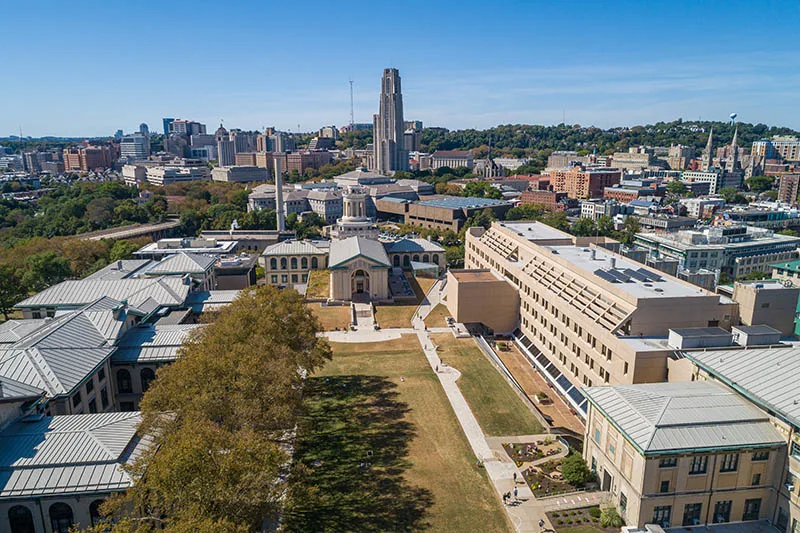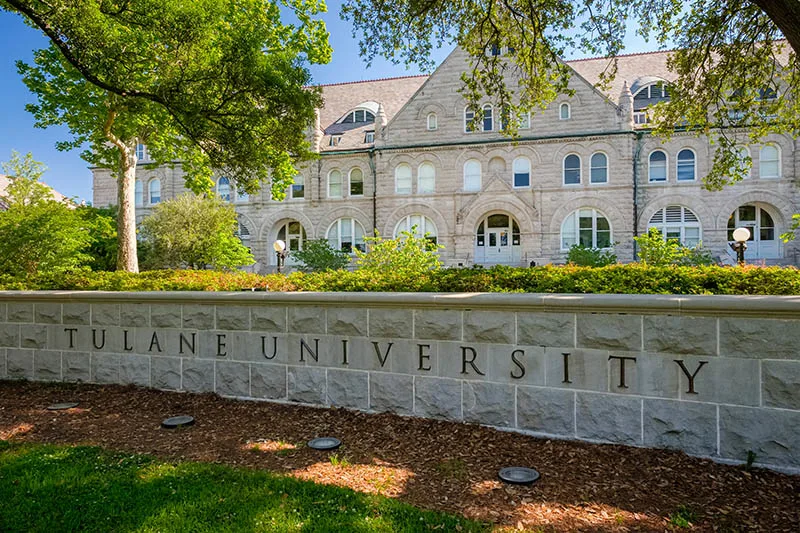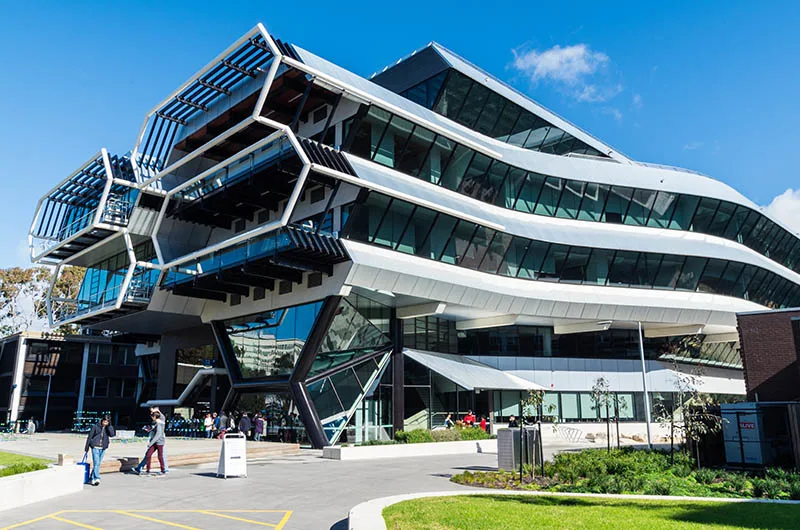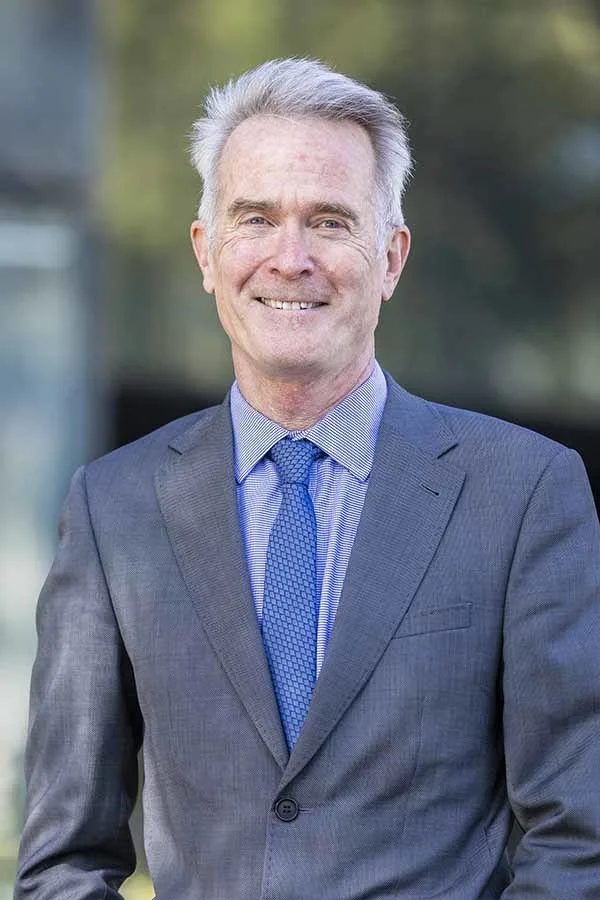
Preparing for a transformative agreement: Library leaders share their experience
Library leaders discuss the importance of goal setting and consulting with stakeholders
The past decade has seen steady growth in the number and scope of open access agreements between scholarly publishers and institutions/consortia. And while these agreements may vary in form, they all share a common vision — to progress open access publishing.
In this series of three case studies, we highlight the experiences of three library leaders who have partnered with Elsevier to develop agreements that support their institutions’ strategic goals. Together, their stories provide a unique insight into the transformative agreement process.
In this case study, the first in the series, interviewees explain the factors that prompted them to explore the transformative agreement route and the value of engaging stakeholders.
Establishing goals and initiating discussions

Carnegie Mellon University. (Mindaugas Dulinskas via Getty Images)
For Carnegie Mellon University (CMU)(abre em uma nova guia/janela), the attraction of transformative agreements is simple — they offer a direct route to achieving an ambition that is close to the senior leadership team’s hearts.
Located in the heart of the US city of Pittsburgh, CMU is recognized for the quality of its research and its innovative approach to solving complex problems. But in recent years, members of the university’s senior leadership team began expressing a desire to broaden access to that research. As Keith Webster(abre em uma nova guia/janela), CMU’s Dean of University Libraries, explains: “The work done at Carnegie Mellon has the potential to transform the world, but we knew that if we wanted its impact to have maximum effect, the world needed to be able to read it.”
“The work done at Carnegie Mellon has the potential to transform the world, but we knew that if we wanted its impact to have maximum effect, the world needed to be able to read it.”

KW
Keith Webster
Carnegie Mellon University
These conversations were taking place in 2019, when open access (OA) publishing was still a relatively new concept for some US universities. However, that wasn’t the case at CMU, according to Keith. “I had worked in other countries where open access approaches were perhaps more advanced than in the United States and had already spent a bit of time thinking about these issues,” he reveals. “And my then president and provost had both been senior people at the National Science Foundation, where they had looked at open access from a national policy perspective. Together, we had a relatively rich understanding of the opportunities it offers and were discussing how we could best support it.”
The path they chose was transformative agreements. “We began by identifying our top publishers,” recalls Keith. “We found that there was a fairly clear clustering of seven big publishers that represented probably 80+ percent of publications coming out of CMU.”
Elsevier was the first of those publishers that CMU decided to approach. “Our ScienceDirect subscription was coming up for renewal, so it felt like the right time. And we have a record of close collaboration with Elsevier, so there was a trusted relationship we could build upon,” Keith explains.
It was just a few months later that the first discussions around a transformative agreement took place between Elsevier and Tulane University(abre em uma nova guia/janela), a private research institution in the US city of New Orleans.
A quick guide to the three transformative agreements
Carnegie Mellon University: In 2019, the university signed its first transformative agreement with a publisher: a four-year deal with Elsevier. It was also the first deal of its kind between Elsevier and a university in the United States. Today, CMU has agreements in place with an additional five major publishers. Find out more about the Elsevier agreement.
Tulane University: The four-year transformative agreement the university signed with Elsevier in 2022 was the first of five they now have in place with publishers. Find out more about the Elsevier agreement.
Council of Australian University Librarians (CAUL): CAUL signed a three-year transformative agreement with Elsevier in 2022 — the largest of its kind in the Australasian region — bringing the total number of CAUL’s transformative deals to 24. Find out more about the Elsevier agreement.

Tulane University in New Orleans. (Raul Rodriguez via Getty Images)
For Tulane’s library team, finance was a key motivating factor. Dr Andy Corrigan(abre em uma nova guia/janela), Associate Dean of Libraries, recalls:
We met with our two Elsevier reps about an upcoming multi-year deal. Initially, it was the usual discussion around how much we could — or couldn’t — afford. And then I started explaining how it works here budget-wise; how little control the library actually has and the dangers to our budget that loom ahead. And they were interesting too; they explained how things work on their side of the fence.
According to Andy, the next step was for both parties to “roll up our sleeves and think OK, what can we do to make this different from the usual multi-year agreement?” The Tulane library team had already been keeping a close eye on open access developments overseas; for example, the 2018 launch of Plan S, an ambitious initiative by European research agencies and funders to achieve full and immediate open access. “And here in the US, Carnegie Mellon had signed a transformative agreement with Elsevier,” Andy says. “And although there were some differences between the profiles of Carnegie Mellon and Tulane, there were some similarities too.”
So Elsevier and Tulane began to discuss options for “an agreement with open access terms.” According to Andy, it was immediately clear that both parties wanted to find a solution:
Our overarching theme was sustainability — creating something that was sustainable on both ends. And there was this sense that Elsevier was willing to look at things differently, which was not something we had seen from other publishers. For us, the fact that it was Elsevier we were getting that kind of response from was a bit of a surprise! But it did enable us to make progress.
“Right from the beginning, this was very much a mutual discussion.”

AC
Andy Corrigan
Tulane University
However, that progress was disrupted in early 2020 when the COVID-19 pandemic hit. On reflection, Andy thinks the break was helpful:
By the time we came back to the table, other publishers were talking about different agreement models. And I think that made it a little easier for our counterparts at Elsevier to say internally, ‘OK, we've been talking about this for a long time with Tulane and we really think it could work.’

The Green Chemical Futures building at Monash University, Australia. (NilsBV via Getty Images)
The pandemic also impacted early discussions between Elsevier and the Council of Australian University Librarians (CAUL)(abre em uma nova guia/janela). Alongside providing leadership for 39 Australian and eight New Zealand university libraries, the organization acts as a consortium for its members, negotiating deals with publishers on their behalf.
According to former Board member Bob Gerrity,(abre em uma nova guia/janela) who was Program Director for CAUL’s Procurement Program, until a few years ago member libraries largely focused on the green open access route, also known as self-archiving. This involves authors sharing an earlier version of their article online in a publicly accessible location, such as an institutional repository or funder website. To support the growth of green OA, in the early 2000s, the Australian government provided institutions with funding to build their own repositories. “This led to a focus on populating those repositories and didn’t leave much room to consider other strategies,” Bob explains.
But, in 2018, CAUL began exploring whether transformative agreements, already being negotiated and implemented in Europe, might offer a speedier path to 100 percent open access publishing for journal articles. Bob, who is also University Librarian at Australia’s Monash University, reveals: “We realized full open access would take us forever if we continued down the green route. Despite the investment in repositories, roughly half of Australian researcher-produced publications in the last 10 years were still behind paywalls.”
CAUL signed its first transformative agreement with a publisher in 2019 and has continued to add new deals each year. Today, the total stands at 24 and includes an agreement signed with Elsevier in 2022.
“We did a lot of desktop research into what was happening in other parts of the world.”

BG
Bob Gerrity
CAUL
Canvassing stakeholders and securing buy-in
With initial discussions open, the next step for all of our interviewees was to gauge opinion within their organizations. This also proved vital for engaging support.
Understanding consortium members’ needs
At CAUL, this involved Board engagement with members to socialize the idea of using the Content Procurement Program as a vehicle for advancing open access, by adding OA publishing entitlements to existing consortial subscription agreements.
Bob recalls: “We presented the idea to leverage our collective spend on subscriptions to advance open access at our institutions, in the absence of a national plan for OA, as there was in many other nations. We also formalized a statement in support of open access, with the published version being the preferred pathway.” In addition, the Board secured members’ agreement that while institutional repositories would continue to be an important component of Australian research infrastructure, their focus should be on unique material such as “non-traditional outputs,” research data, and gray literature.
With members’ support for transformational agreements established, the next step was to understand which publishers they wanted to approach and what they wanted the deals to contain. CAUL members’ key agreed goals for transformative agreements were cost neutrality (achieving as much open access publishing as possible within the existing level of expenditure on subscriptions), and evidence of publisher commitment to transitioning to a fully open environment in a reasonable timeframe.
CAUL conducts an annual survey of members prior to the beginning of each annual negotiating cycle. It typically contains questions on a diverse range of topics, from collection budget projections to institutional strategic goals.
“Many of our universities rely heavily on international students, but Australia essentially closed its borders during the COVID-19 pandemic. That really sharpened our focus on transformative agreements and containing costs.”

BG
Bob Gerrity
CAUL
CAUL uses an annual open meeting with its publishers and vendors to share members’ feedback. “We try to set very clear expectations about what we are looking for,” Bob explains. But when agreement discussions resumed with Elsevier post-COVID, CAUL decided to try a different approach: “We set up a less formal conversation with Elsevier and were a bit more direct about what we would need if we were actually going to progress,” Bob says. “And we got a clear signal that, yes, we do want to pursue an open access agreement — that’s when things slowly began to move.”
Gauging support on campus
For Keith, canvassing Carnegie Mellon University stakeholders for their views was an essential first step. Over a busy four to five weeks, he reached out to a series of key groups on campus, beginning with the Executive Committee of CMU’s Faculty Senate. “I explained why we were pursuing this, what we hoped to achieve, and what would happen if we were unsuccessful. Essentially, I was trying to gauge their sense of tolerance.”
This led to an invitation to present to the Full Faculty Senate and an outreach campaign to individual faculty members, which resulted in “a lot of email exchanges.” But, according to Keith, those efforts were rewarded with a unique insight into the university’s appetite for open access. “I heard a range of opinions, from those who wanted to see publishers put out of business to people deeply engaged with their societies who were concerned about the long-run impact of open access on society revenues.”
Keith’s final piece of preparation was a presentation to CMU’s Board of Trustees, designed to help them understand the reputational aspect. It also offered him an opportunity to gain their perspective on “market timing and market reactions.”
According to Keith, the most important outcome of these outreach activities was to spark a mature and informed conversation about open access on campus. “Taking individual publishers out of the equation, we were able to discuss what is our view as a university?”
Given the scale of the agreement under discussion, he also included the university’s president and provost in his early conversations with Elsevier.
For Andy and his library colleagues at Tulane, demonstrating the sustainability aspect of transformative agreements proved an effective way to drum up interest and support on campus. “It's tough budget-wise within universities. There has been a big focus at Tulane on improving return on investment, so we were able to show that this would provide a better ROI for us.”
Another development that helped garner support was the publication of a memorandum by the White House Office of Science and Technology (OSTP) in August 2022. The memo directs all US federal agencies to develop policies that make federally funded research and its supporting data immediately and freely available upon publication, effective no later than the end of 2025. Andy says: “I think the OSTP memo was an important element in getting the Office of the Provost interested in what we are trying to do – they have been very supportive.”
Tulane’s faculty also expressed an interest in pursuing transformative agreements and were keen to understand how the APCs would be funded. Their level of engagement wasn’t a surprise to Andy: “After all, they are the ones who are required to publish open access,” he notes. In particular, faculty members sought reassurance — which Andy was able to provide — that that their ability to publish in high-impact journals would not be affected by any agreements signed.
Next case study
In our next case study — Securing and implementing a transformative agreement — we take a closer look at how the three organizations prepared for their transformative agreement discussions with Elsevier and other publishers. Our interviewees also touch on how they rolled out the agreements to stakeholders.
The interviewees
Andy Corrigan
Associate Dean of Libraries at Tulane University, USA
Andy has been Associate Dean of Libraries at Tulane since 2005, having first joined the university in the summer of 1994. He is also the library’s Chief Collections Officer and directs its collections planning and expenditures. He directed the library’s recovery initiatives after Hurricane Katrina, which included the salvage and replacement of lost or damaged collections. As part of the eventual remediation of the library’s flooded spaces, he was the library’s project manager in the group that oversaw the FEMA-assisted construction of a 5th- and 6th-floor addition atop the Howard-Tilton library building.
He holds an EdD in Educational Administration from West Virginia University and an MLIS in Library and Information Science from the University of Rhode Island.

Andy Corrigan
Bob Gerrity
University Librarian at Monash University, Australia, and Former Program Director of the Procurement Program for CAUL (Council of Australian University Librarians)
Bob commenced as University Librarian at Monash University in March 2018, overseeing all aspects of Library service to Monash’s 85,000 students and 17,000 professional and academic staff. Since joining Monash, he has led a program of modernization, bringing the library in line with the University’s global ambitions. Bob was Program Director for the Council of Australian University Librarian’s’ Procurement Program from 2018 to 2023, leading CAUL’s efforts to leverage the consortium’s large collective subscriptions spend to advanced open access, through transformative agreements. Prior to his appointment at Monash, Bob was the University Librarian at the University of Queensland for five years. Earlier in his career, he spent 19 years in technology leadership positions at the Boston Public Library and the Boston College Libraries.

Bob Gerrity
Keith Webster
Helen and Henry Posner, Jr. Dean of the University Libraries at Carnegie Mellon University, USA
Keith was appointed Dean of University Libraries at Carnegie Mellon University in July 2013 and was additionally appointed as Director of Emerging and Integrative Media Initiatives in July 2015 and Posner Dean’s Chair in 2021. Previously, Keith was Vice President and Director of Academic Relations and Strategy for the publisher Wiley. Keith has held professorships in information science at Victoria University of Wellington and City University, London. He has served on government advisory boards, journal editorial boards, and as an officer in professional and learned societies around the world. Keith’s professional interests include research evaluation, learning space design, and trends in scholarly communication. He is a regular speaker on topics such as the future of research libraries and the impact of open science on publishing and libraries.

Keith Webster